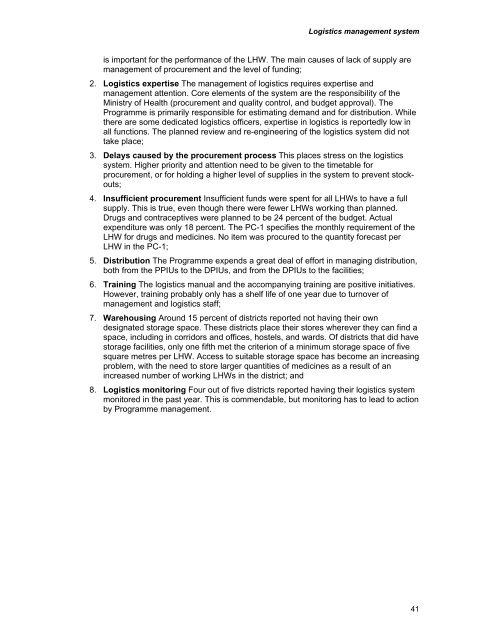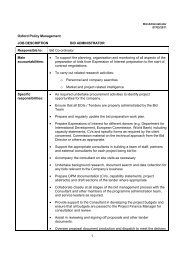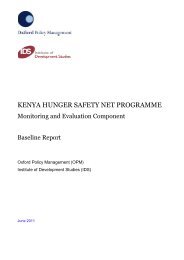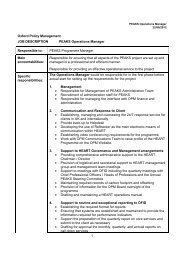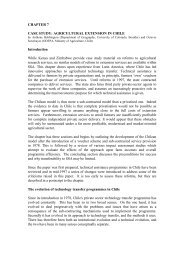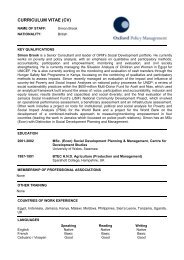LHW Systems Review - Oxford Policy Management
LHW Systems Review - Oxford Policy Management
LHW Systems Review - Oxford Policy Management
You also want an ePaper? Increase the reach of your titles
YUMPU automatically turns print PDFs into web optimized ePapers that Google loves.
Logistics management systemis important for the performance of the <strong>LHW</strong>. The main causes of lack of supply aremanagement of procurement and the level of funding;2. Logistics expertise The management of logistics requires expertise andmanagement attention. Core elements of the system are the responsibility of theMinistry of Health (procurement and quality control, and budget approval). TheProgramme is primarily responsible for estimating demand and for distribution. Whilethere are some dedicated logistics officers, expertise in logistics is reportedly low inall functions. The planned review and re-engineering of the logistics system did nottake place;3. Delays caused by the procurement process This places stress on the logisticssystem. Higher priority and attention need to be given to the timetable forprocurement, or for holding a higher level of supplies in the system to prevent stockouts;4. Insufficient procurement Insufficient funds were spent for all <strong>LHW</strong>s to have a fullsupply. This is true, even though there were fewer <strong>LHW</strong>s working than planned.Drugs and contraceptives were planned to be 24 percent of the budget. Actualexpenditure was only 18 percent. The PC-1 specifies the monthly requirement of the<strong>LHW</strong> for drugs and medicines. No item was procured to the quantity forecast per<strong>LHW</strong> in the PC-1;5. Distribution The Programme expends a great deal of effort in managing distribution,both from the PPIUs to the DPIUs, and from the DPIUs to the facilities;6. Training The logistics manual and the accompanying training are positive initiatives.However, training probably only has a shelf life of one year due to turnover ofmanagement and logistics staff;7. Warehousing Around 15 percent of districts reported not having their owndesignated storage space. These districts place their stores wherever they can find aspace, including in corridors and offices, hostels, and wards. Of districts that did havestorage facilities, only one fifth met the criterion of a minimum storage space of fivesquare metres per <strong>LHW</strong>. Access to suitable storage space has become an increasingproblem, with the need to store larger quantities of medicines as a result of anincreased number of working <strong>LHW</strong>s in the district; and8. Logistics monitoring Four out of five districts reported having their logistics systemmonitored in the past year. This is commendable, but monitoring has to lead to actionby Programme management.41


